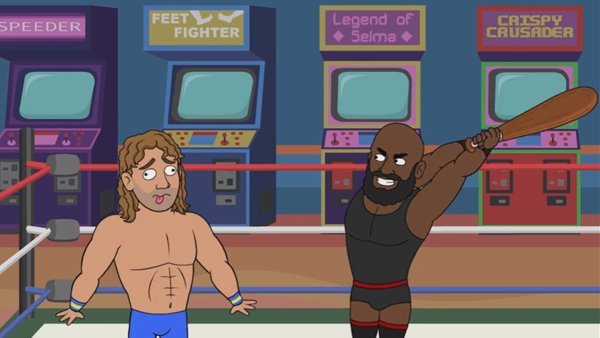Why The WWE Network FAILED

WWE, to many fans who switched off in recent years - Triple H called him "Mark," but it was very much plural - had become as repetitive as it was drawn-out as it was, ultimately, meaningless. Long-term storytelling executed by over stars used to draw punters. Content, however, draws billions. A great deal of wrestling fans never could reconcile this warped manner by which the industry had evolved and failed upwards creatively. Just as well for WWE that they don't matter, at least in the medium-term. But analysts are scrambling to work out just what's in this for Peacock - some speculate that an outright purchase of WWE must be the end goal, with the Network an absorbed body blow en route to victory - because the fans at large weren't moved by this apparent billion-dollar property.
A bargain only feels like a bargain when discounted against something of premium quality. One can only exist alongside the other. By failing to preserve WrestleMania as a destination that once felt like it took forever to arrive, it became just another thumbnail. This was key; literally all of WWE's output bled into itself, and WrestleMania while pretty and everything was just as bloated and as inconsequential as everything else.
If the discounted streamed pay-per-views weren't enough to claw back the lapsed fans, the original content was inessential to even the hardcores. The fluff wasn't even irreverent enough to become beloved in cult circles. Story Time was pointlessly animated repurposed shoot interview fodder. Swerved, an attempt at a prank show, was a weird continuation of the idea that WWE is legitimate entertainment anybody might like. Legends' House placed several old-timey carnies with various issues into a house, and unsurprisingly, the expected joviality mutated into unsettling darkness. And did anybody ever give a sh*t about the lore of Corey Graves' tattoos?
Even the (well-produced) documentaries put together to further draw in the hardcore fan didn't really work.
CONT'D...(5 of 6)